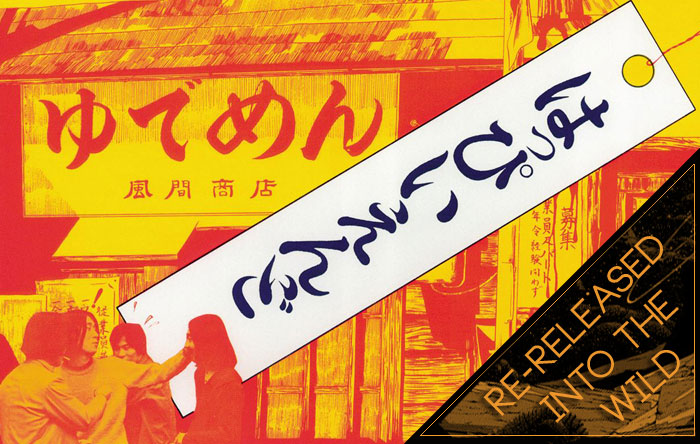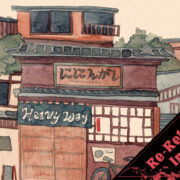Happy End – Happy End 

Its been a long time coming, but many of the essential Japanese albums from the psychedelic era are now coming back to the reissue circuit. While most were represented in the CD-heavy aughts boom, the trickle back to vinyl has been slow for some, and even then it’s been limited to imports in many cases. With the reissue of the Hosono catalog through Light in the Attic, the artist’s other pre-Yellow Magic Orchestra work is now creeping out from the corners. Last year Survival Research reissued Hosono’s early band Apryl Fool, a band that would stand at the beginning of his journey into the modern musical heart, and now they’re continuing with the band he skipped onto next, Happy End. While the band’s sophomore LP is probably the most widely known, their debut hardly anything to dismiss offhand. Alongside Eiichi Ohtaki, Shigeru Suzuki, and Takashi Matsumoto, the latter also of Apryl Fool, they began move away from the blues that held sway of the Fool and into the strains of country rock, folk and lightly flecked psychedelia that would prove pervasive in their American counterparts. The difference here is that the band made the insistence on keeping the lyrics in their native Japanese, possibly alienating Western audiences at the time, but endearing them to their local crowds.
While it seems only natural that Japanese bands might sing in Japanese, at the time the Western influence was so strong that it was seen as almost a given that English language was the only path to prominence. This led to the Nihongo Rokku Ronsō or Japanese Language Controversy, a debate that the success of this album and the subsequent Kazemachi Roman helped to settle. It’s easy to see how this album catapulted the band to success — with a combination of soulful songwriting, adept musicianship that easily incorporates and melds their various genres, and hooks that should have transcended any language barrier — the only true curiosity is that the album didn’t crossover beyond their country’s bounds at the time. There are elements of CSNY, Moby Grape, and Quicksilver Messenger Service at play, especially in the three-part harmonies working their way through the folk forms, but the leads on Happy End tend to push further than most US/UK bands ever let themselves wander. In every sense this is a killer album that outstrips similar fodder that ruled international charts at the time. Very glad to see this back in print and hoping that this is the beginning of a run of the rest of Happy End’s catalog for US audiences.
Support the artist. Buy it HERE.









